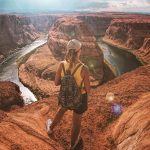Table of Contents
The moment our eyes locked, I felt a profound shift in my understanding of the world. This wasn’t just another tourist attraction—it was a life-altering experience.
The Power of Animal Encounters
There’s something magical about coming face-to-face with wildlife. It’s not just about seeing animals in their natural habitat; it’s about feeling a connection to something bigger than ourselves. These encounters have the power to change our perspectives, challenge our assumptions, and even alter the course of our lives.
Why Wildlife Encounters Matter
In a world dominated by screens and concrete jungles, wildlife encounters offer a much-needed reconnection with nature. They remind us of our place in the ecosystem and the importance of preserving it. But more than that, they have the potential to:
- Inspire conservation efforts
- Foster empathy for other species
- Challenge our preconceptions about animal intelligence and emotions
- Provide unforgettable memories that shape our worldview
The Most Impactful Wildlife Encounters
- Swimming with Whale-Sharks – Imagine being in the water with the largest fish in the sea. Whale shark encounters are not just thrilling—they’re humbling. These gentle giants teach us about the vastness of the ocean and our responsibility to protect it.
- Gorilla Trekking in Uganda or Rwanda – Looking into the eyes of a mountain gorilla is like looking into a mirror. The similarities between us and these great apes are striking, forcing us to reconsider our relationship with the natural world.
- Observing Elephants in the Wild – Elephants’ complex social structures and emotional intelligence challenge our notions of what animals are capable of. Watching a herd interact in their natural habitat is a masterclass in empathy and community.
- Encountering Polar Bears in the Arctic – Seeing these magnificent creatures in their rapidly changing habitat drives home the reality of climate change like nothing else can. It’s a wake-up call to the urgent need for environmental action.
- Diving with Dolphins – The playfulness and intelligence of dolphins can spark joy and wonder in even the most jaded traveler. Their apparent ability to communicate and solve problems challenges our understanding of animal cognition.
The Transformation: Before and After
Before the Encounter
Many of us start our wildlife journeys with preconceived notions:
- Animals are fundamentally different from humans
- Nature is something separate from us, to be viewed from a distance
- Conservation is someone else’s problem
After the Encounter
After meaningful wildlife interactions, perspectives often shift dramatically:
- We recognize the emotional lives of animals
- We feel a deeper connection to the natural world
- We’re more likely to engage in conservation efforts
- Our consumption habits may change to be more environmentally friendly
- We become advocates for the protection of wildlife and their habitats
The Science Behind the Change
It’s not just anecdotal—science backs up the transformative power of wildlife encounters:
- Studies show that direct experiences with nature increase environmental concern and pro-environmental behavior
- Interactions with animals have been linked to increased empathy and emotional intelligence in humans
- Conservation programs that include wildlife encounters report higher long-term engagement from participants
Responsible Wildlife Tourism: Doing It Right
While wildlife encounters can be transformative, it’s crucial to engage in them responsibly. Here’s how:
- Choose ethical operators who prioritize animal welfare over profit
- Respect wildlife by maintaining appropriate distances and not interfering with natural behaviors
- Support conservation efforts in the areas you visit
- Educate yourself about the species and ecosystems you’re encountering
- Share your experiences to inspire others, but be mindful of the impact of social media on sensitive habitats
The Ripple Effect: How Your Experience Changes Others
Your wildlife encounter doesn’t just change you—it has the potential to impact your entire community:
- Sharing your experiences can inspire others to seek out similar encounters
- Your changed perspective can influence friends and family to reconsider their relationship with nature
- Supporting conservation efforts financially or through volunteerism can have tangible impacts on wildlife populations
Challenges and Controversies
It’s important to acknowledge that wildlife tourism isn’t without its controversies:
- Some argue that any human interaction negatively impacts wildlife
- There are concerns about the commodification of nature
- Overtourism in some areas has led to habitat degradation
However, when done responsibly, the benefits of wildlife encounters—both for humans and animals—can outweigh these concerns.
Beyond the Encounter: Keeping the Connection Alive
The real challenge is maintaining that sense of connection and responsibility once you’re back home. Here’s how to keep the spirit of your wildlife encounter alive:
- Stay informed about the species you encountered and their conservation status
- Make lifestyle changes that reflect your new perspective, like reducing plastic use or choosing sustainable products
- Volunteer with local wildlife organizations
- Plan future trips with a focus on responsible wildlife encounters
The Unexpected Lessons
Wildlife encounters often teach us things we never expected to learn:
- Patience: Nature operates on its own schedule, not ours
- Humility: We’re just one species among many, each with its own intrinsic value
- Interconnectedness: Every species plays a crucial role in the ecosystem
- Resilience: Animals’ ability to adapt to changing environments is both inspiring and cautionary
From Spectator to Steward
The most profound shift that occurs through wildlife encounters is the transition from being a passive observer of nature to an active steward. It’s a journey from thinking “That’s interesting” to feeling “I have a responsibility here.”
A Call to Wild Adventure
Wildlife encounters have the power to change not just how we see animals, but how we see ourselves and our place in the world. They challenge us, inspire us, and connect us to something greater than ourselves.
So, are you ready to have your perspective transformed? The wild is waiting, and trust me, you’ll never be the same again.

I’m Simon St John, an editor who thrives on finding the profound moments in travel. With a background in crafting engaging stories for all generations, I delve into both grand adventures and simple discoveries. Through Tripnosis.me, I aim to showcase how travel can be a powerful catalyst for personal growth and deeper connections. My goal is to present fresh narratives that inspire and redefine your travel experience.




